13 Apr 2017 | Events
[vc_row][vc_column][vc_single_image image=”88437″ img_size=”full” alignment=”center”][vc_column_text]Doughty Street Chambers and Index on Censorship invite you to a breakfast talk on Tuesday 18 April with guest speakers Ildar Dadin and his wife Anastasia Zotova.
Dadin is a well known Russian opposition and LGBT rights activist, and is the only person to have been convicted under a 2014 law which seeks to crush protest. For a series of one-man pickets, often silent, he was sentenced to three years’ imprisonment notwithstanding that the prosecutor sought a shorter sentence, and that before the anti-protest law was enacted a sentence for such activity would have been limited to a fine or a suspended sentence. Dadin will speak about his time in Russian prison colonies, including the torture he and other prisoners suffered until he was unexpectedly released in February of this year. He will also speak about the horrific news coming from Chechnya in recent days of state-sanctioned violence against gay men, and the difficulty in getting information on these abuses to the world because of Russia’s severe restrictions on press freedom and journalists.
Dadin will be speaking via video-link. Despite the sudden and unexpected quashing of his conviction in February, he remains subject to a travel ban preventing him from leaving Russia. Even though Article 27.2 of the Russian Constitution states “Everyone may freely leave the Russian Federation. Citizens of the Russian Federation shall have the right to freely return to the Russian Federation”, the number of Russian citizens prevented from leaving the country on the orders of the Kremlin is rising year on year.
The session, chaired by Russia expert and Doughty Street barrister Malcolm Hawkes, will conclude with a discussion of the action that lawyers and others can take to support Dadin and others in Russia who seek to promote free expression and a free press, and who need help to challenge travel bans, so that they can convey information to the world of State sponsored abuses of civil liberties and human rights.[/vc_column_text][/vc_column][/vc_row][vc_row][vc_column][vc_column_text]
When: Tuesday 18 April, 8:30-9:30am
Where: Doughty Street Chambers, 53-54 Doughty Street, London WC1N 2LS
Tickets: Free. RSVP to [email protected]
[/vc_column_text][/vc_column][/vc_row][vc_row][vc_column][vc_basic_grid post_type=”post” max_items=”4″ element_width=”6″ grid_id=”vc_gid:1491988837452-bf486d81-dbe7-4″ taxonomies=”9013″][/vc_column][/vc_row]
13 Apr 2017 | Events
[vc_row][vc_column][vc_column_text]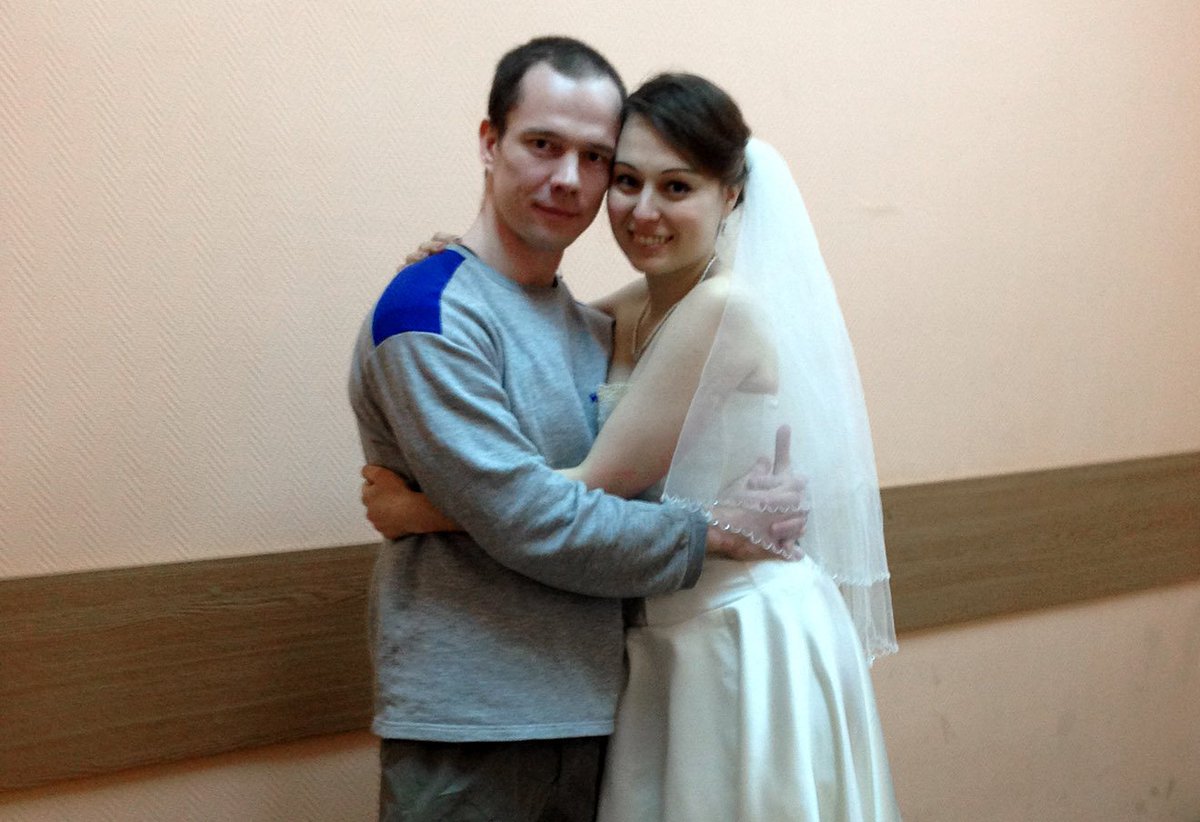 Pushkin Club, Rights in Russia and Index on Censorship are proud to invite you to this evening in conversation with Anastasia Zotova.
Pushkin Club, Rights in Russia and Index on Censorship are proud to invite you to this evening in conversation with Anastasia Zotova.
An opportunity to meet someone whose name has been constantly in the news since Ildar Dadin was arrested under a new law banning solitary protests in Russia.
A journalist covering Dadin’s courageous one-man pickets against the Putin regime and the war in Ukraine, Zotova married the detained Dadin in late 2015 and continued to publicise his plight after his imprisonment in a penal colony in Karelia, where he was tortured, and his subsequent transfer to another camp in southern Siberia. Husband and wife have done more than anyone, arguably, to expose conditions in Russia’s large and brutal penitentiary system which today holds dozens more political prisoners.
The event will be held both in English and in Russian with translation.
This is a Pushkin Club event and all are welcome.
[/vc_column_text][vc_column_text]
When: Thursday 20 April 7:30pm
Where: Pushkin House, 5a Bloomsbury Square, WC1A 2TA
Tickets: Free. Registration required: [email protected]
[/vc_column_text][/vc_column][/vc_row][vc_row][vc_column][vc_basic_grid post_type=”post” max_items=”4″ element_width=”6″ grid_id=”vc_gid:1492103802860-b443cf38-52ba-4″ taxonomies=”7″][/vc_column][/vc_row]
13 Apr 2017 | Bahrain, Bahrain News, Middle East and North Africa
[vc_row][vc_column][vc_column_text]
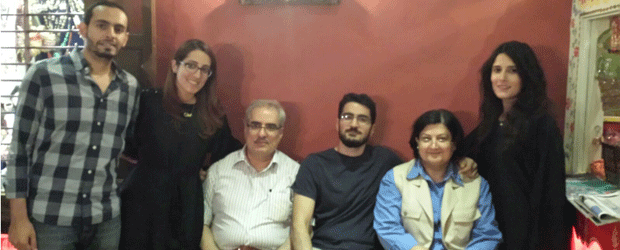
Ebrahim Sharif, third from left, Farida Ghulam, second from left, and family.
Farida Ghulam, the wife of Ebrahim Sharif, the former secretary-general of Bahraini opposition group National Democratic Action Society (Wa’ad), has written an open letter to political and human rights institutions worldwide calling for solidarity against the dissolution of Wa’ad.
Written on behalf of the secular political party, Ghulam’s letter asks for national figures, Arab organisations and international institutions to help “protect the little remaining freedoms enjoyed by Bahrainis that have been undermined over the past few years”.
On 6 March 2017, the Ministry of Justice filed a lawsuit calling for the dissolution of Wa’ad following a statement made by the political societies of the National Democratic Movement, a secular group of which Wa’ad is a part, demanding a “comprehensive national consensus to end the political and constitutional crisis” in Bahrain.
The Ministry of Justice, the body administratively responsible for political organisations in Bahrain, has accused Wa’ad of “advocating violence” and supporting an “environment that incubates terrorism”, arguing that statements made by the political societies represented a departure from established principles.
The first hearing of the case against Wa’ad took place on the 20 March 2017 and the final hearing is scheduled for the 17 April 2017, with a judgment expected to be passed within one month.
The time of the comments made by the National Democratic Movement marks six years since the end of the pro-democracy movement in Bahrain, which saw numerous protests take place in opposition to the repressive government.
The authorities’ retaliation to the peaceful demonstrations of its citizens resulted in the injury of more than 30 protesters. Recent years have seen an increase in government repression, arrests — with many tried in military courts — and revocation of citizenship for hundreds of Bahrainis.
The US State Department has recorded the continued violation of human rights in the Arab nation and the Bahraini authorities’ preferred use of security measures over the pursuit of diplomatic solutions obtained through a negotiated political settlement. The political climate in Bahrain has led to increased hardships for the country’s citizens, amplified by an economic crisis.
Wa’ad, the first established secular party opposition in Bahrain, questions the legitimacy of the current Bahraini constitution. It upholds the principles of democracy, equality and freedom of thought and belief. Despite its failure to win any seats in the 2006 parliamentary elections, Wa’ad, led by Sharif between 2005 and 2012, has retained a high media profile.
Ghulam’s letter indicates that the Ministry of Justice has purposely failed to refer to key documents, statements and positions taken by Wa’ad and other opposition groups in building its case, including the Manama Document issued in October 2011 and the Declaration of Principles of Nonviolence presented in November 2012. This confirms Wa’ad’s commitment to “peaceful means, rejection of violence and adoption of dialogue and consensus building to find solutions in political differences”.
Ghulam also says that the authorities have taken and interpreted words from Wa’ad statements “at will and out of context”.
Actions taken by the Bahraini authorities to dissolve Wa’ad follow their crackdown on opposition parties since the mass protests of 2011, with two other opposition groups dissolved as a result of similar lawsuits. Islamic Action Association (Amal) was brought to an end in 2012 and its secretary-general, Sheikh Mohammed Ali Almahfood, was given a five-year prison sentence. 2016 saw the dissolution of the nation’s largest political organisation, Al-Wefaq National Islamic Society. Secretary-general Sheikh Ali Salman was sentenced to nine years in prison. The citizenship of the group’s spiritual leader, Sheikh Isa Qasim, was also revoked.
In addition to actions taken against Wa’ad, new charges were also brought against Sharif earlier this month following a series of tweets. The political activist was charged with “incitement to hatred against the regime” under article 165 of Bahrain’s penal code following messages posted on his Twitter account.
The former Wa’ad leader was imprisoned and tortured in 2011 for his role in campaigning against Bahrain’s political regime alongside a group of other human rights advocates known as the Bahrain 13. He was rearrested in 2015 a few weeks after his initial release, following a speech where he called for sustained peaceful opposition against the country’s authorities.
Sharif also faced charges in November 2016 after comments he made to the Associated Press regarding Prince Charles’ visit to Bahrain, although these were later dropped. He now faces a further three years in prison.
[/vc_column_text][/vc_column][/vc_row][vc_row][vc_column][vc_basic_grid post_type=”post” max_items=”4″ element_width=”6″ grid_id=”vc_gid:1492096403121-1bd99655-9b6e-3″ taxonomies=”716″][/vc_column][/vc_row]
13 Apr 2017 | News and features, Turkey, Turkey Uncensored
[vc_row][vc_column][vc_column_text]
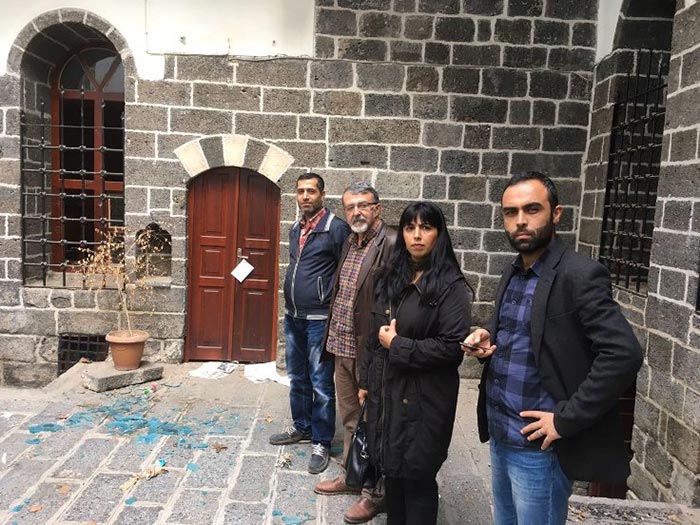
Kürt Yazarlar Dernegi, tarihi Sur ilçesindeki eski Diyarbakir evlerinden birini Özgür Gazeteciler Cemiyeti ile birlikte kullaniyordu. Dernegin es baskanlari Reso Ronahî ile Yildiz Çakar, üyeleriyle birlikte dernegin avlusunda bekliyorlar. Dernegin kapisi yeni mühürlenmis.
The Kurdish Writers Association used one of the old Diyarbakır houses in the historical Sur district together with the Free Journalists Society. The association’s co-presidents, Reso Ronahî and Yıldız Çakar, wait outside the association together with members. The association’s doors have been newly sealed [by authorities].
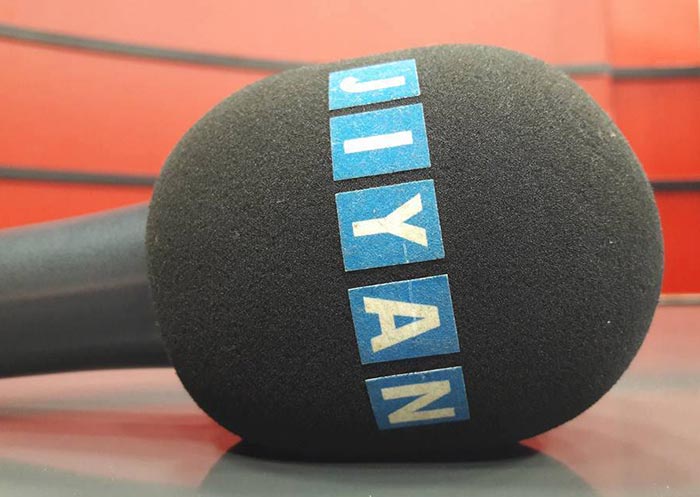
Jiyan Tv Kürtçenin Zazaki lehçesinde yayin yapan ilk televizyon kanaliydi.
Jiyan TV was the first TV channel to broadcast in the Zaza dialect of Kurdish.
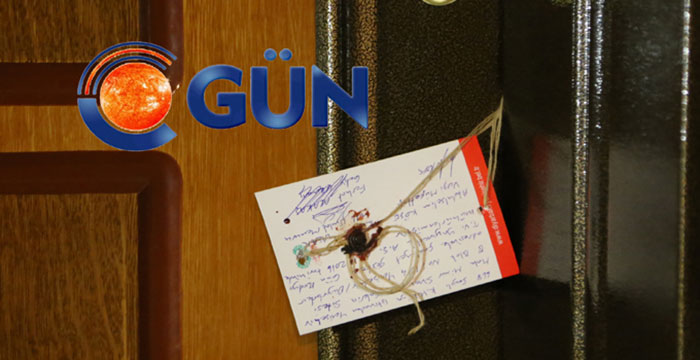
Diyarbakir’da Kürtçe ve Türkçe yayin yapan Özgür Gün Tv, KHK ile kapatildi.
Özgür Gün TV, which broadcast in Diyarbakır in Kurdish and Turkish, was closed by Executive Order.
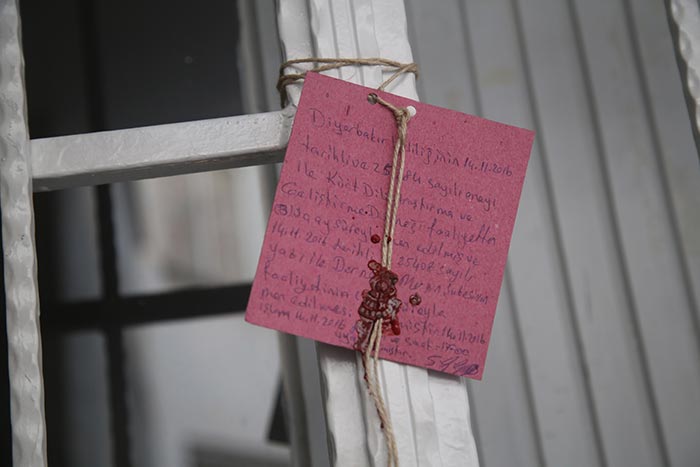
Pek çok il ve ilçede subeleri bulunan Kurdi Der, Kanun Hükmünde Kararname ile kapatildi.
Kurdi-Der (The Kurdish Language Research and Development Association), which had branches in many towns and cities, was closed by Executive Order.

Kürtçe oyunlar sahneleyerek Kürt tiyatrosuna önemli katkilarda bulunan Diyarbakir Büyüksehir Belediyesi Sehir Tiyatrosu, Olaganüstü Hal’in ilanindan sonra kapatilmadi. Ancak belediyeye kayyim ataninca tiyatrocularin tamami isten çikarildi ve tiyatro fiilen kapatilmis oldu.
The Diyarbakır Metropolitan Municipality City Theatre, which has made important contributions to Kurdish theatre by putting on Kurdish-language plays, was not closed after the declaration of a state of emergency. However, when a trustee was appointed to the municipality, all the theatre employees were fired and the theatre was de facto closed down.
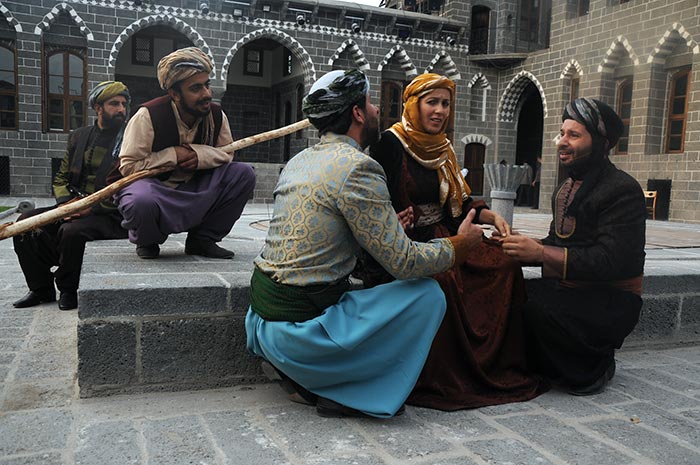
Kürtçe oyunlar sahneleyerek Kürt tiyatrosuna önemli katkilarda bulunan Diyarbakir Büyüksehir Belediyesi Sehir Tiyatrosu, Olaganüstü Hal’in ilanindan sonra kapatilmadi. Ancak belediyeye kayyim ataninca tiyatrocularin tamami isten çikarildi ve tiyatro fiilen kapatilmis oldu.
The Diyarbakır Metropolitan Municipality City Theatre, which has made important contributions to Kurdish theatre by putting on Kurdish-language plays, was not closed after the declaration of a state of emergency. However, when a trustee was appointed to the municipality, all the theatre employees were fired and the theatre was de facto closed down.
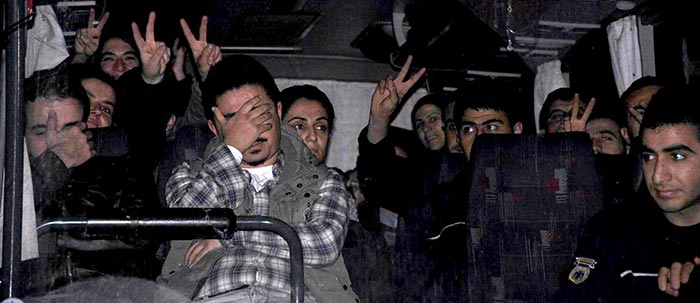
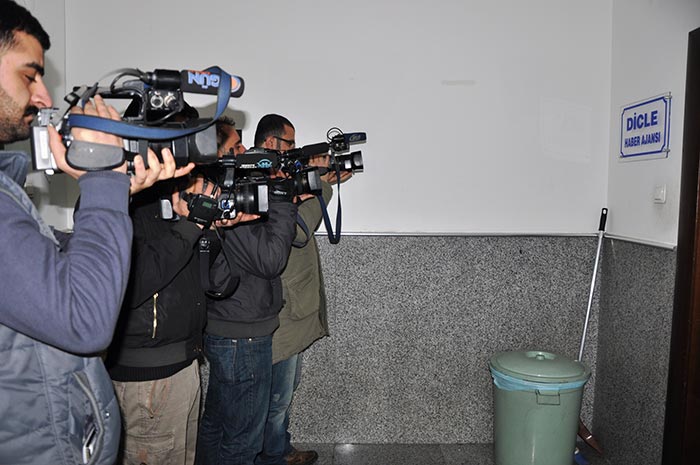
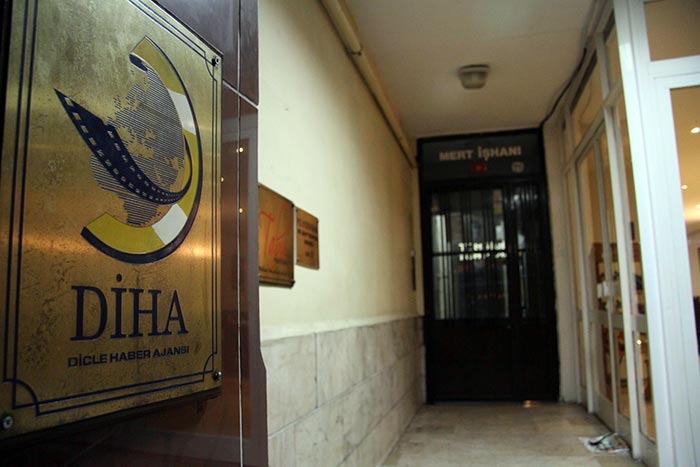
Dicle Haber Ajansi kurulusundan bu yana çok defa polis tarafindan basildi ve haber konusu oldu. editör ve muhabirleri topluca gözaltina alindi. Internet sitesinin erisimi, 2015’ten kapatildigi 2016 yilina kadar 48 defa engellendi.
From the time the Dicle News Agency was established to the present day, the police have often raided it and it has often been in the news. Its editors and reporters were arrested en masse. Access to the internet site was blocked 48 times in 2015 and 2016.
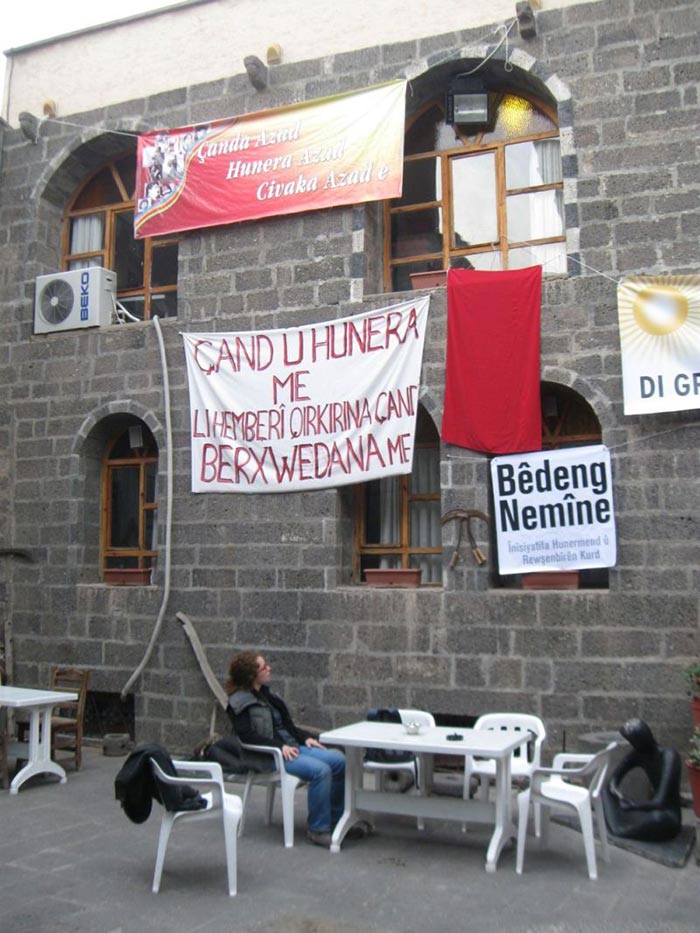
Dicle Firat Kültür Merkezi, Mezopotamya Kültür Merkezi’nin Diyarbakir’daki subesi. Burada müzik, halk oyunlari, resim gibi kurslar veriliyordu.
The Tigris and Euphrates Cultural Centre was the Diyarbakır branch of the Mesopotamia Cultural Centre. Here there were courses given in areas such as music, folk dancing, and painting.
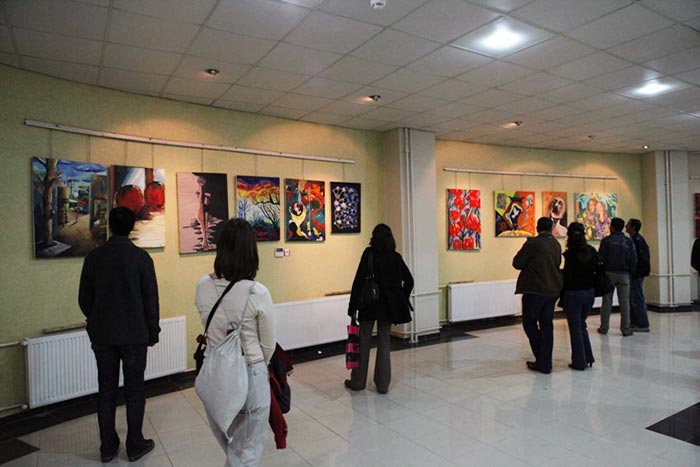
Kayapinar Belediyesi’ne ait Cegerxwin Kültür Merkezi, adini ünlü Kürt sair Cegerxwin’den aliyor. Sanatin bir çok dalinda egitim veren kurum, bugüne kadar yüzlerce ögrenci mezun etti. Cegerxwin Kültür Merkezi’nin bir de sergi salonu var.
The Cegerxwîn Cultural Centre belonging to Kayapınar Council takes its name from the famous Kurdish poet Cegerxwîn. Hundreds of students have graduated from the institution, which provides education in many branches of the arts. There is also an exhibition hall at Cegerxwîn Cultural Centre.
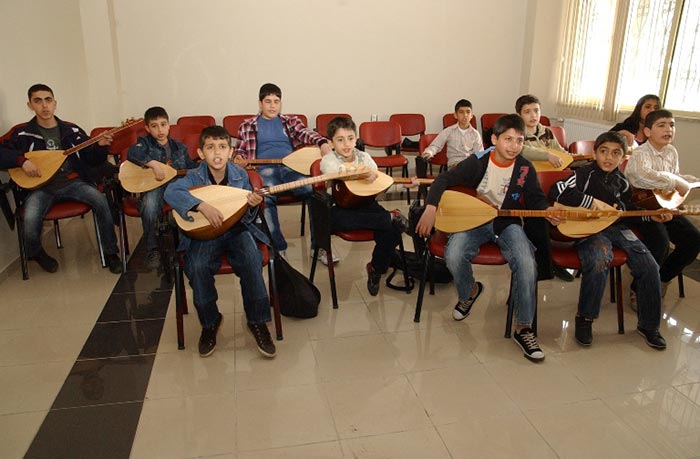
Kayapinar Belediyesi’ne ait Cegerxwin Kültür Merkezi, adini ünlü Kürt sair Cegerxwin’den aliyor. Sanatin bir çok dalinda egitim veren kurum, bugüne kadar yüzlerce ögrenci mezun etti. Cegerxwin Kültür Merkezi’nin bir de sergi salonu var.
The Cegerxwîn Cultural Centre belonging to Kayapınar Council takes its name from the famous Kurdish poet Cegerxwîn. Hundreds of students have graduated from the institution, which provides education in many branches of the arts. There is also an exhibition hall at Cegerxwîn Cultural Centre.
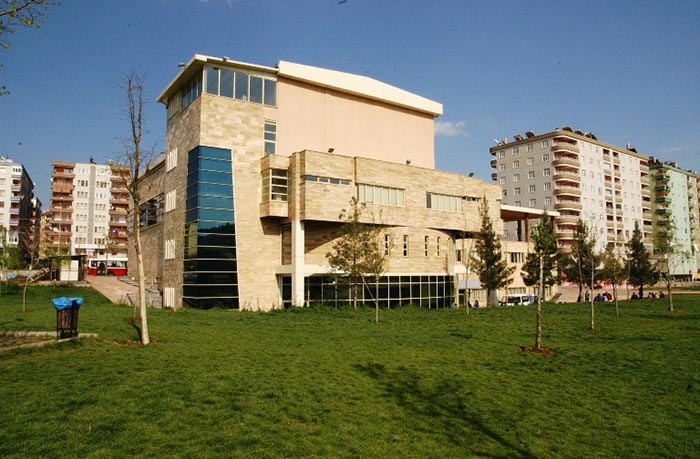
Cewgerxwin Kültür Merkezi.
Cegerxwîn Cultural Centre.
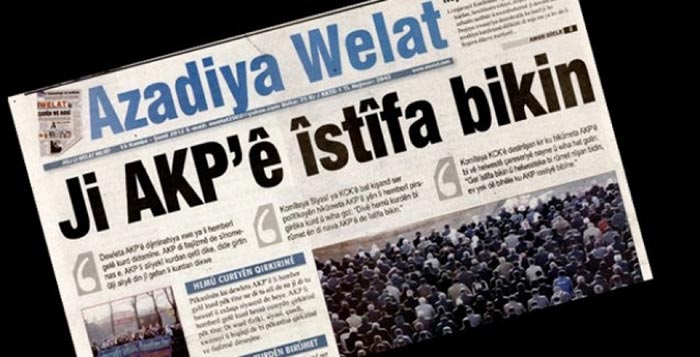
Türkiye’de Kürtçe yayinlanan ilk günlük gazete olan Azadiya Welat, KHK ile kapatildi.
Turkey’s first daily newspaper in Kurdish, Azadiya Welat, was closed with a state of emergency order.
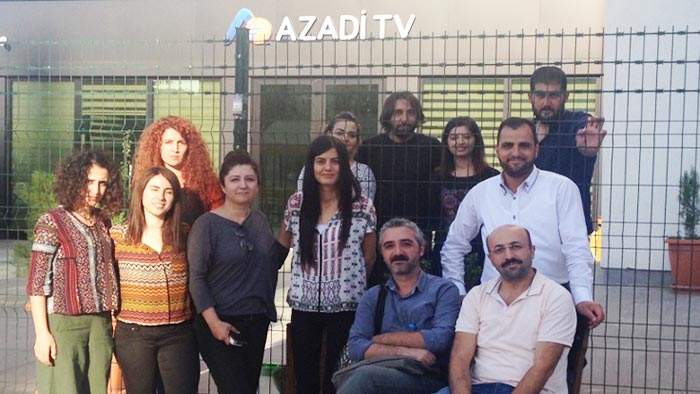
Merkezi Diyarbakir’da bulunan Azadî Tv, Kürtçe ve Türkçe yayin yapiyordu.
Azadî TV, whose headquarters are located in Diyarbakır, used to broadcast in Kurdish and Turkish.
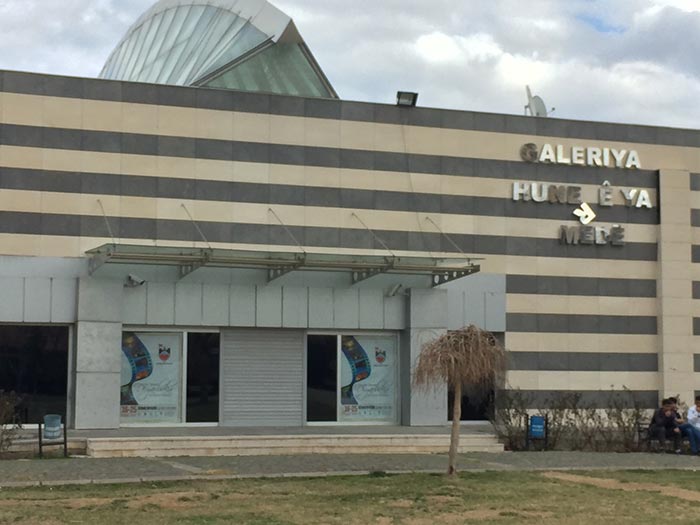
150’den fazla sergiye ev sahipligi yapan Amed Sanat Galerisi, Diyarbakir Büyüksehir Belediyesi’ne kayyim ataninca sanata kapilarini kapatti.
The Amed Art Gallery, which has played host to over 150 exhibitions, closed its doors to art after a trustee was appointed to Diyarbakır Metropolitan Municipality.[/vc_column_text][vc_column_text]

Turkey Uncensored is an Index on Censorship project to publish a series of articles from censored Turkish writers, artists and translators.
[/vc_column_text][/vc_column][/vc_row][vc_row][vc_column][vc_basic_grid post_type=”post” max_items=”12″ style=”load-more” items_per_page=”4″ element_width=”6″ grid_id=”vc_gid:1492093702668-36263af0-9654-0″ taxonomies=”8607″][/vc_column][/vc_row]

 Pushkin Club, Rights in Russia and Index on Censorship are proud to invite you to this evening in conversation with Anastasia Zotova.
Pushkin Club, Rights in Russia and Index on Censorship are proud to invite you to this evening in conversation with Anastasia Zotova.
















